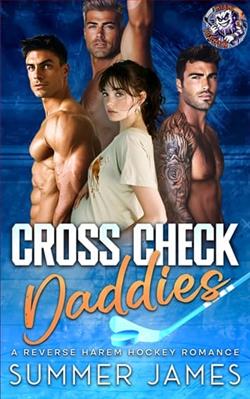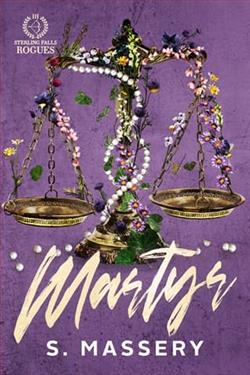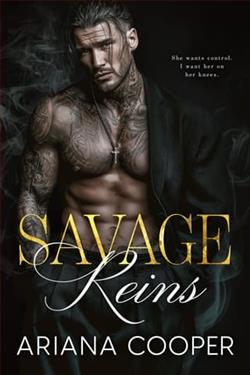Page 49 of Happiness for Beginners
“It’ll be worth it, then.”
“Do you think she can be fixed?”
“I think she can behelped.”
We lay there in silence for a few minutes as an image popped into my head of Pickle hiding behind the toilet, baring her teeth at me as I held out a treat and said, “Come on! Let’s retrain your neurobiology!”
Then Windy asked, “Is she your only family?”
“Yes,” I said. Then: “No! I have a brother. And a grandmother. And an ex-husband.” It seemed like a pretty sad list, even to me. I could have gone on: “And a father, and a stepmother, and two half siblings in California who I never see. And a mother I’m estranged from.” Something about Windy made me want to go ahead and say it all—to talk about my parents, and what had happened, and the Tragedy that had spun all our lives off on unexpected, distant, isolated paths.
Windy had such a kind face and such a patient way of listening that I almost just took a deep breath and exhaled the whole story. Almost. But I caught myself. It was far too bleak for a campfire chat. Who would want to hear a story that sad? I didn’t even want to hear it myself.
“And I have lots of friends,” I said then, as if I’d never hesitated. “Teacher friends from school. We have a Chick Flick Movie Nite once a month, and we’ve been learning to crochet.”
Windy nodded, likeThat’s nice.
“But Pickle,” I concluded at last, bringing us full circle, “is by far my closest companion.”
Pickle truly had been my friend this year. My mean, irritable, homely dear friend. If she hadn’t waddled into my bedroom every night, skinned tail wagging, beady eyes fixed on me until she guilt-tripped me into picking her up and setting her on the bed, I might have collapsed from loneliness. I’d saved her, but she’d saved me right back. Despite all her flaws, Pickle was—in the right context, under the right circumstances, on a quiet night when you were very lucky—surprisingly good at love.
Chapter 9
I woke up sore, and puffy-eyed, and stiff. My thighs hurt. My calves hurt. My back and shoulders hurt. My knee throbbed. I had bruises forming on my hips where the pack belt sat. And the blisters I had ignored the whole day before? Like I’d been splashed with acid.
I hobbled over to Jake’s camp in my flip-flops—pausing only to throw on my fleece jacket. I showed up while his group was cooking breakfast, and he was pouring everybody coffee through a strainer.
He glanced up as I approached, and I felt this crazy jolt inside my rib cage at the eye contact. I don’t know if he felt it too, but he looked back down fast, and didn’t look up again until he was done pouring. He took his time, and I had no choice but to notice the beginnings of a beard on his face and neck. No razors. All the guys would end up with beards, Beckett had told us. I’d always been a fan of the five-o’clock shadow. And Saturday morning stubble. It made men look rugged, somehow. It made Jake look older and more mature—more like somebody I could be infatuated with.
I bent forward to massage that thought out of my head.
That’s when he turned to me. “Altitude headache?”
I looked up. “Actually,” I said, realizing I did have a slight one, “yes.”
He nodded, stepping toward me, all EMT business. “Extra water today. If it gets worse, you can have Tylenol.”
“Okay.”
He started to turn back, like we were done.
“Um,” I said then. “Also? Could you help me with my bandage?”
As his tent group looked on, he squinted in apology. “I’m sorry. I forgot your name.”
I gave him a look. “Helen,” I said.
“Ellen?”
I flared my nostrils. “Helen,” I said. “With an ‘H.’”
“Right,” he said. “Sorry. Well, let’s grab the first-aid kit, Helen-with-an-H. I’m Jake, again, by the way. Coffee?” He held out the pot, as if I might slurp directly from it.
“No, thank you.” I wanted to repeat his name wrong, too, but there’s not really another name that sounds like Jake. What would I say?Rake? Flake?
I put my hands in my pockets and took the high road. “Thank you for your help, Jake.”
He led me over to a fallen log so I could sit.















